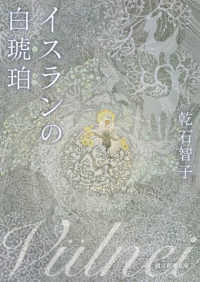- ホーム
- > 洋書
- > ドイツ書
- > Humanities, Arts & Music
- > History
- > 20th century (1914-1955/49)
Description
(Text)
This study examines the 18th century Russian court culture as a political frame for legitimacy of the new empress Elizabeth, daughter of Peter I, who seized power after a coup d'état in November 1741 and was in need of explaining the coup and "cancelling" the previous rule in public sphere. The book reflects on narratives and practices of the new government in its attempt to legitimise the new sovereign using memory politics to construct Emperor Peter I as the creator of the new Russia. Using interdisciplinary methods, Deniss Hanovs and Valdis T_raudkalns analyse the tools which were used to create this new legitimacy. These include a court opera, multimedia baroque festivals and religious ceremonies, epic poetry and even students' essays dedicated to the new empress, which created a multifaceted collection of performative actions, in text, music, ritual, drawings and ceremonial architecture.
(Author portrait)
Deniss Hanovs is professor of cultural history at the Art Academy of Latvia.
Valdis T_raudkalns is professor of church history and history of religion and teaches at the University of Latvia.








